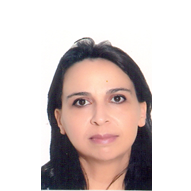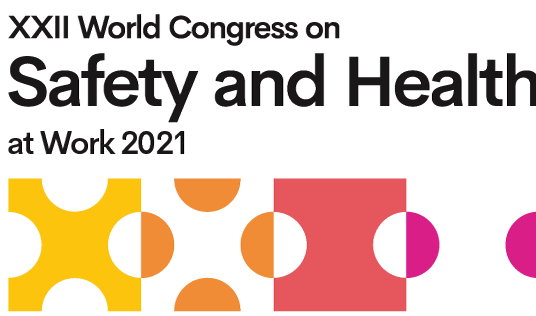Ms. Salima Admi
Director of Labour, Ministry of Labour and Professional Integration, Morocco Ms. Admi has a State Engineer Diploma from the National School of Mineral Industry ENIM, Ergonomics Diploma, Certificate on the ISO 45001 standard, Certificate on local employment initiatives from the International Center of the ILO in Turin, Certificate on Project Management from the International Center of the ILO in Turin, Certificate on International Standards and Gender from the International Center of the ILO in Turin, and Certificate on Social Policies from the International Institute of Social Studies in Geneva in 2012.
Ms. Admi has a State Engineer Diploma from the National School of Mineral Industry ENIM, Ergonomics Diploma, Certificate on the ISO 45001 standard, Certificate on local employment initiatives from the International Center of the ILO in Turin, Certificate on Project Management from the International Center of the ILO in Turin, Certificate on International Standards and Gender from the International Center of the ILO in Turin, and Certificate on Social Policies from the International Institute of Social Studies in Geneva in 2012.
Ms. Admi is a Chief State Engineer with 24 years of experience, including five years at the Ministry of Labour and Professional Integration as Director of Labour, one year at the Ministry of Employment as Director of Cooperation and Partnership, four years at the Ministry of Employment and Social Affairs as Head of the Division of Safety, Hygiene and Occupational Medicine, five years at the Ministry of Employment as Head of the Social Laws Division, three years at the National Social Security Fund CNSS as Head of the Organization Division within the Audit Department , Management Control and Organization, four years at the Ministry of Employment as Head of Management Control, and two years at the Vocational Training Department as Continuing Education Officer.
Sessions
11:05 - 11:55 am EDT / 15:05 – 15:55 pm UTC / 17:05 – 17:55 pm CEST
Breakout Session B – Organized by ILO: Resilient and sustainable workplaces in light of the COVID-19 Pandemic through good governance and social dialogue
The session will address the impacts of COVID-19 on workers and businesses. It will ask participants to express their knowledge and views of what has worked well and what needs to be improved for a better governance of the crisis and be prepared for other potential threats to health and economic growth. The roundtable discussion will bring together representatives from the International Labour Organization, government, employers, workers, and a research institution to engage on a dialogue focused around following key questions:
- What type of action is required from all to better address the still on-going pandemic, how can we build better into the future we want, and what have we learned from this experience that we should not repeat?
- How will this influence the future of prevention?
- Where should we focus as a priority for being able to forecast and prepare for health and safety emergencies that can affect us all globally or in a given a region? What are the major challenges and obstacles that we need to consider?
- What advice would you give to our audience on how to build and make the best use of synergies between tripartite actors in diverse national environments? What are the most difficult obstacles for this to happen?
Speakers:
Mr. Andrew Gavrielatos, Executive Director, Community Engagement, SafeWork NSW and Chair, XXIII World Congress on Safety and Health at Work, Australia
Mr. Roberto Suárez Santos, Secretary-General, International Organisation of Employers, Switzerland
Mr. Owen Tudor, Deputy General Secretary, International Trade Union Confederation, Belgium
Panelists:
Ms. Salima Admi, Director of Labour, Ministry of Labour and Professional Integration, Morocco
Mr. Derrick Hynes, President and CEO of FETCO (Federally Regulated Employers – Transportation and Communications)
Ms. Tara Peel, National Representative, Health, Safety & Environment, Canadian Labour Congress, Canada
Dr. Elke Schneider, Senior Project Manager, European Agency for Safety and Health at Work, Spain
Dr. Youcef Ghellab, Head, Social Dialogue Unit, International Labour Organization
Moderator:
Mr. Joaquim Pintado Nunes, Chief, Labour Administration, Labour Inspection and Occupational Safety and Health Branch, International Labour Organization
Languages:
English, French, German, Spanish











